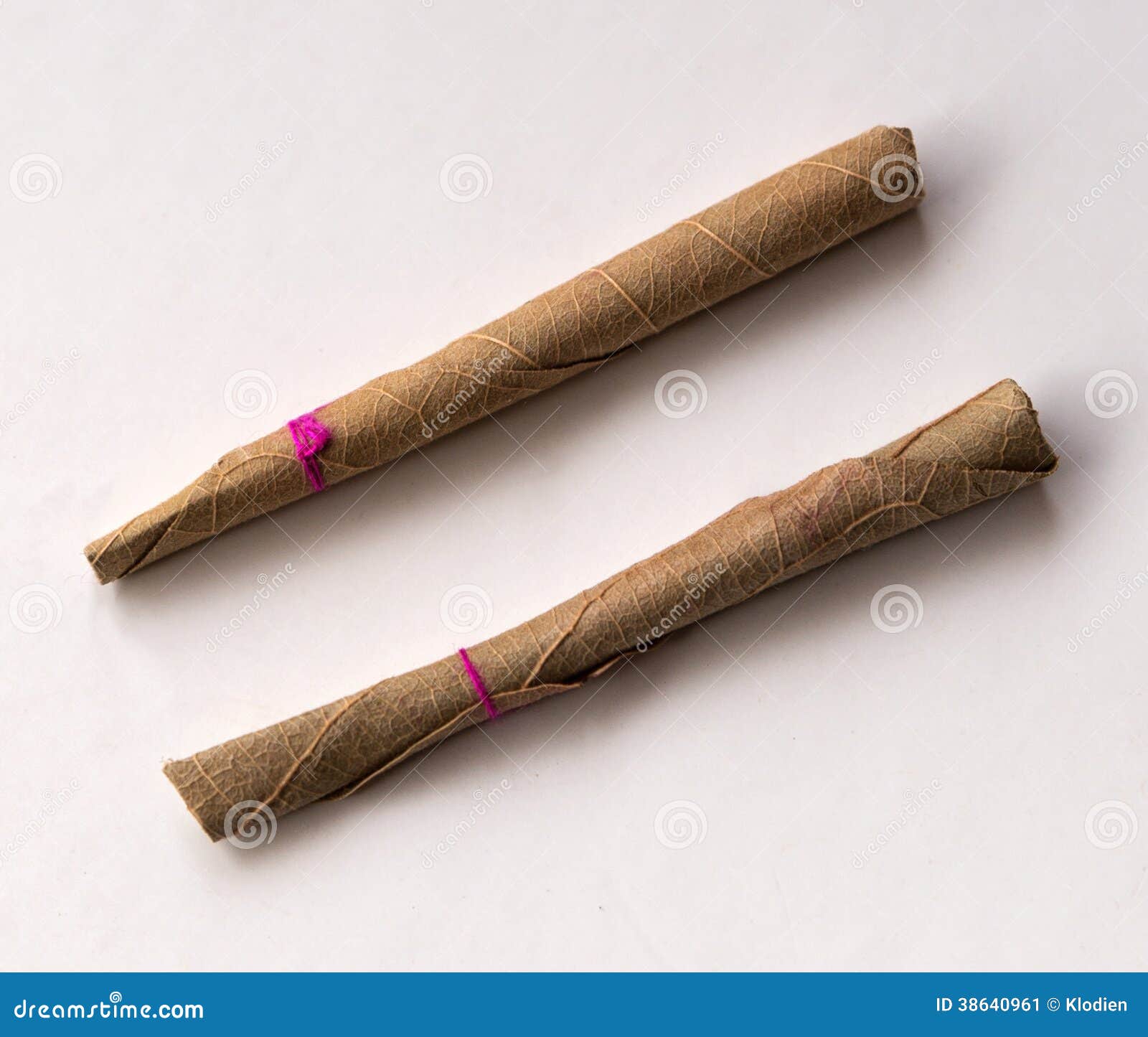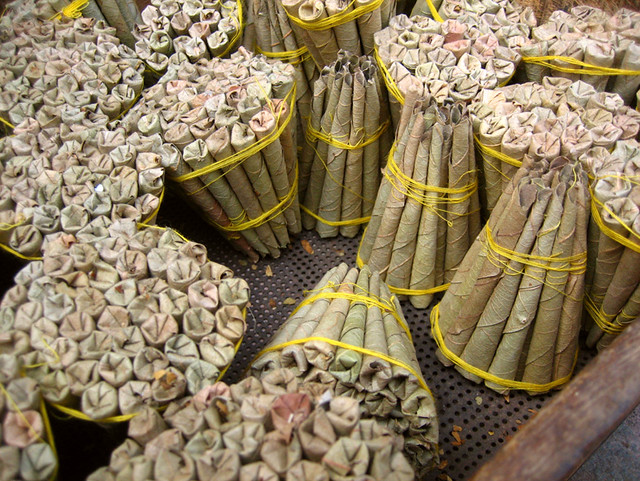Beedi
Bidi ( hindi: बीड़ी, Biri Biri ) is called an Indian cigarette-like tobacco product from a Tendublatt ( Ceylon ebony, Diospyros melanoxylon ) as husk and tobacco or other herbs as a filling. Bidis are very dry, strong and are often scented.
History
Since then, in 1605, reached the tobacco in India, started the production of tobacco in the country. The first bidis were invented by workers of the tobacco farms, tobacco rolled in leaves. From the 1930s, when worldwide increased demand for tobacco goods, also witnessed the bidi production a huge boom. Reason for this unprecedented development but was also the politics of Gandhi, who supported Indian products and domestic industry politically. Intellectuals and educated Indians, it also attracted therefore propose soon, Beedies to smoke instead of cigarettes to give a clear signal to import goods and British influence.
To date, Beedies also be smoked to demonstrate independence and Indian national consciousness.
Consumers
Due to lower tobacco taxes and cheaper production bidis are smoked like to poorer sections of the population in Bangladesh, Pakistan, Afghanistan, Sri Lanka, Cambodia and India. In English, therefore we also speak of a " Poor man 's cigarette", a poor man's cigarette.
The smoker needs, compared with a normal cigarette, inhale more deeply and more often to keep the bidi on annealing. According to a study by the Centers for Disease Control and Prevention of the smoker takes in comparison to a regular cigarette very high levels of carbon monoxide (39 mg / bidi ) and tar (78 mg / bidi ) to itself. In Germany, cigarettes can only contain a maximum of 10 mg carbon monoxide or tar in the smoke.
Production and distribution
India produces more tobacco than the United States, the center of the international tobacco industry. It amazes therefore, that the cover page of bidis is not tobacco, but a tendu leaf, and black wood. The black wood or Diospyros melanoxylon is a tree whose wood is expected to be the layer of wood. It also leaves of different trees are used: exsculpta Diospyros, Bauhinia racemosa, or Artocarpus heterophyllus Holarrhena pubescens.
The leaves of these trees are harvested in the months of April and May, and dried in the sun before they are cut into rectangular pieces and moistened before rolling again. In the sheet of a mixture of tobacco is rolled, which are often flavored. Then the bidis are dried for a certain time in specially heated rooms and packed in paper cuffs to 25 pieces.
Bidi rollers are for the most part women that roll in home work for the manufacturers of cigarettes. The raw material Tendublätter, tobacco and herbs, thread and possibly filter is provided by the manufacturer through distribution networks. Health complaints among home workers and home workers are not uncommon because of the tobacco dust. It happens that children participate in the production (see child labor) in order to contribute to the family income, or because they are orphans and earn their livelihood.
Producer of Mangalore Ganesh Beedies but has the Internet explicitly states that he does not employ children. Mangalore Ganesh Beedies has the largest share of the European bidi market. On the package of this smoking product is the auspicious elephant god Ganesha.
In Germany bidis are no longer available, but had to get up in the 1990s in the tobacco shop. It is different in Austria and Switzerland, where they are available today.









